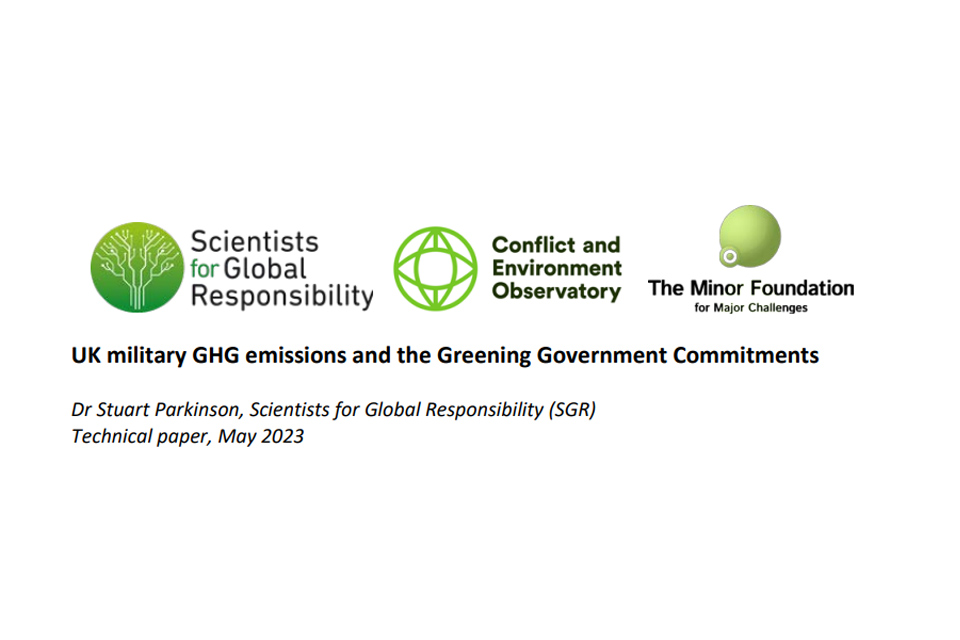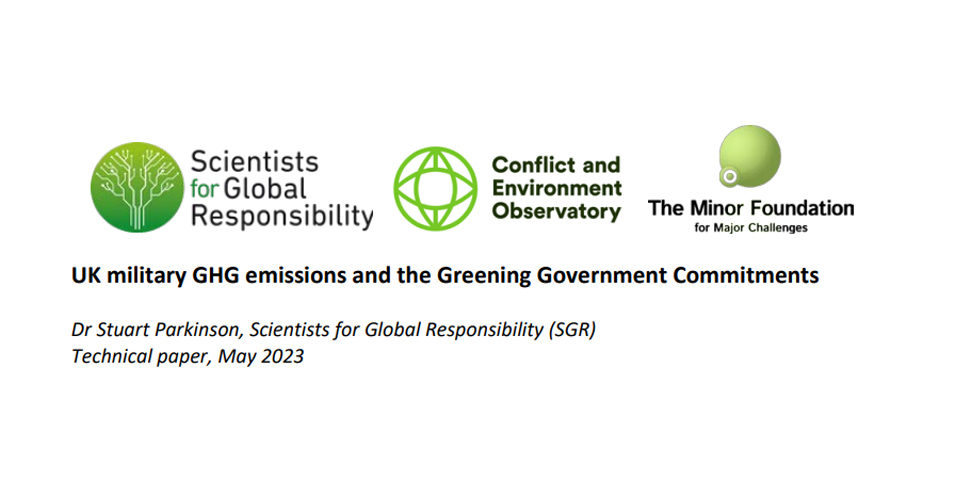UK MoD emissions targets must be made far more ambitious than they are at present.

This short technical paper by SGR’s Dr Stuart Parkinson critically examines the progress that the Ministry of Defence (MOD) has made in meeting targets for reducing greenhouse gas emissions (GHG) from its UK military bases – as defined by its Greening Government Commitments (GGCs) for 2025.
It is found that the MOD is on course to exceed these targets, but that is only because the targets are very weak and undemanding. Indeed, the target for reducing ‘overall’ GHGs from military bases has been set so lax that it would be met even if the MOD took no action to reduce emissions before 2025. This is because the reductions necessary to hit the target are happening anyway due to the decarbonisation of the UK’s national electricity grid. Other reductions in the MOD’s emissions are, so far, towards the lower end of ambition as given in the government’s recent national energy strategy paper, Powering Up Britain, or are due to temporary changes related to the COVID-19 pandemic.
This paper recommends much greater ambition for the MOD’s GGC targets for 2030. It does this for three reasons: to compensate for the lack of progress to date; the greater obstacles to reductions in other military emissions, e.g. from military equipment such as warships and combat planes; and the likelihood that the UK government will increase its GHG emissions reduction ambitions due to the growing climate threat.





